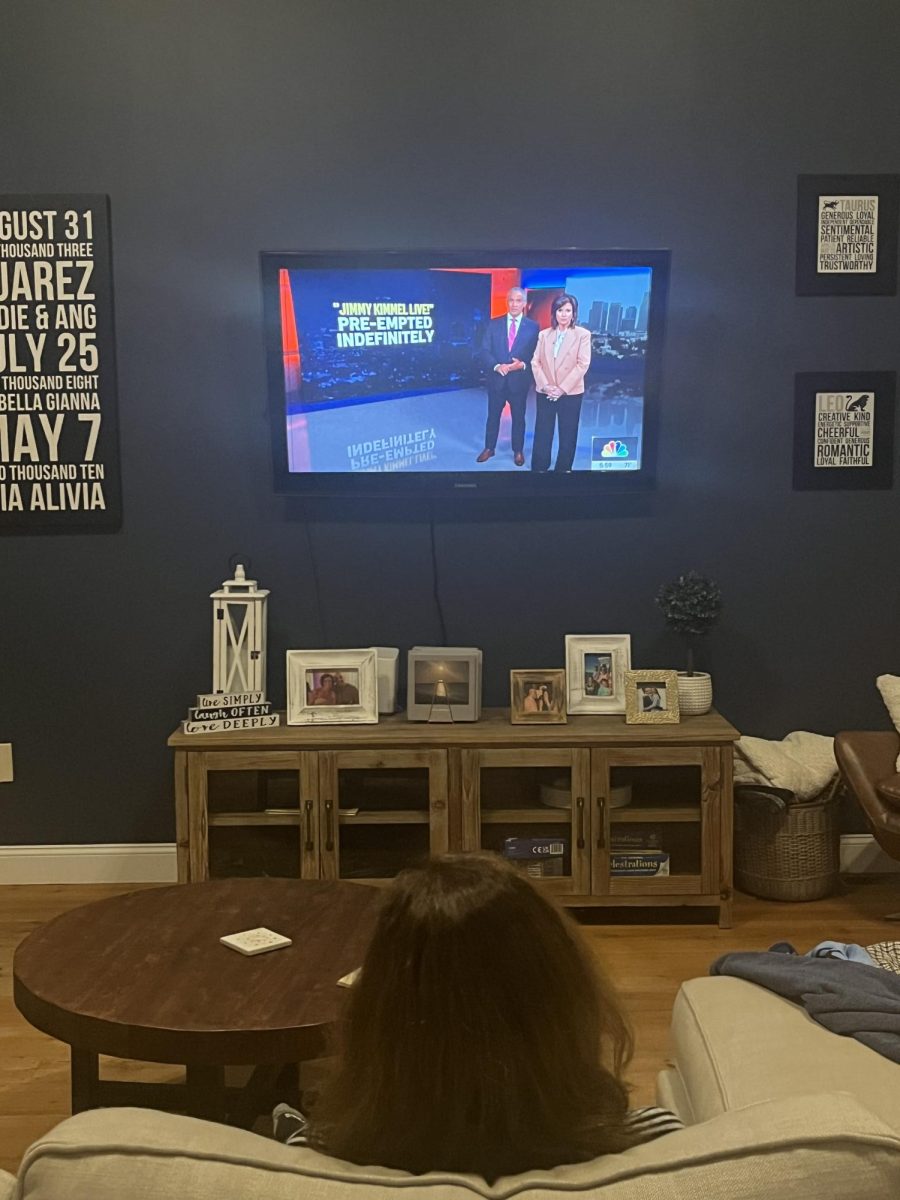For some people, their worst enemy is a mirror. For others, it is the grade they receive on a report card or the number of points scored in a game. There could be some other standard someone is giving everything to reach but keeps falling short. Given the size of the world and the length of a life, it simply doesn’t matter. This is not meant to offend but to help discourage allowing unreachable attainments to gain control.
Who taught everyone that if they aren’t below a certain weight, perform outstandingly, or achieve only A’s, they aren’t worth it? Why do people keep letting themselves think in this same aspect? What determines the pressure these standards carry and how can others work towards changing this mindset?
Teens grow up in environments publicizing model bodies, high IQs’, emotional suppression, and more. Most people have one consistency in common—social media. If you are one of the few who don’t scroll endlessly through the apps of TikTok, Instagram, or Snapchat, consider yourself lucky.
These apps reflect the problem at hand where the prettier a person may be the more likes they get. The smarter a person is the more compliments they receive, the better a person is at a sport the more followers they gather. Media revolves around these things because of the decades-long desire to please others instead of focusing on yourself.
One of Oakmont’s guidance counselors, Kristen Brochu, says, “The way social media is designed creates an environment where users are seeking approval and self-worth based on input from others.” Self-esteem comes from nobody, but yourself. Brochu believes that healthy self-esteem is cultivated from within.
The McLean Hospital studied how these media apps increase the risk of anxiety, depression, and lower self-confidence. This furthers social media’s grasp over somebody outside of the time they are using their device.
This doesn’t mean blocking out all social media from everyday life because that is simply unrealistic. It is so deeply rooted during this time, that there is a very small possibility of being able to leave a phone behind. However, next time just take the time to notice its effects and understand that most things on social media are impacting your health.
Multiple sources, such as UC Davis Health, Stanford Law School, and Child Mind Institute, agree that the harmful effects of social media are stronger among teenagers. Yale Medicine goes further to say that this is more concerning for females and anyone already experiencing poor mental health.
According to UC Davis Health, social media’s heavy focus on physical appearances can severely damage self-esteem. The use of filters can completely erase all imperfections and begin to morph the false perception of “perfection.” Constant exposure to altered images of someone made out to have the “perfect” body—when there is no such thing—leads people to feel self-conscious.
Counselor Brochu says, “Social media is not an accurate representation of reality, and I think it’s very easy to fall into the social media ‘trap.’” It creates an unrealistic perspective of life which can cause dissatisfaction in your own day. It feeds into a cycle that makes you keep clicking on the app, searching for an escape from your problems.
A student at Oakmont, chosen to stay anonymous, agrees that social media “shows people the good parts of life and makes people feel it is not okay to not be perfect, productive, and happy 100% of the time.” Comparing your life to influencers is common among people, especially because everything is right there in front of you.
Another anonymous student speaks on the topic, “I think a lot of people including myself compare themselves to others, and social media has made that view more common.” Every person is unique and everyone has their own qualities, comparing someone to supermodels is a damaging hole to dive into.
In some cases, it becomes more severe, Yale Medicine states, “Particular health outcomes… cyberbullying-related depression, body image and disordered eating behaviors, and poor sleep quality are linked to social media use.” The issue is growing bigger as it starts to severely harm social media users.
Brochu adds, “When things look so perfect and edited, it can be very easy to compare yourself to unrealistic expectations and create self-doubt. It’s not realistic to expect every day and everything is always perfect, for anyone.” Not every second of our lives will be a good one, and that is the reality we must remember.
Recently, cases of disordered eating have become a common outcome of certain social media use. A review of 50 studies across 17 countries between 2016 and 2021, published in PLOS Global Public Health, showed that continuous exposure to unrealistic physical goals could trigger a tainted body image and eating disorders.
These could be severe cases, but small effects could come from it too. These facts don’t mean that watching a blog about someone traveling the world will immediately make you depressed; it means small things like this could add up.
Counselor Brochu offers her advice on the topic, “I do think it’s important to be aware of the positive and negative impacts of social media and technology, as well as be deliberate about social media usage. Creating healthy digital habits like being mindful of screen time and setting limits for yourself. I also don’t think it hurts to “unplug” from time to time.” Awareness and setting healthy habits could be the things that help you out when screens become too much.
The absurd standards set by society began even before social media was a thing. Impossible expectations were present in magazines, newspapers, fashion trends, and overall society. False ideas that someone “has to be skinny” in order to not be alone, have been spread for decades. These kinds of ideas are present all throughout the world and don’t stop at body image.
We have to be smart but not a know-it-all, we have to be attractive but not act like it, we have to be great athletes but not brag, always have to be happy and content, or we are called “ungrateful.” All of this is for what? We constantly beat down our minds and bodies to live up to the idea of “perfection” that society has created. We can do better than let that dictate how we live our lives and how we feel about ourselves.
We all have varying concepts of how being flawless looks, so really in someone else’s eyes, you could be flawless. We all need to stop striving to be perfect in society’s eyes and start focusing on how we can become the best versions of ourselves for ourselves.
















